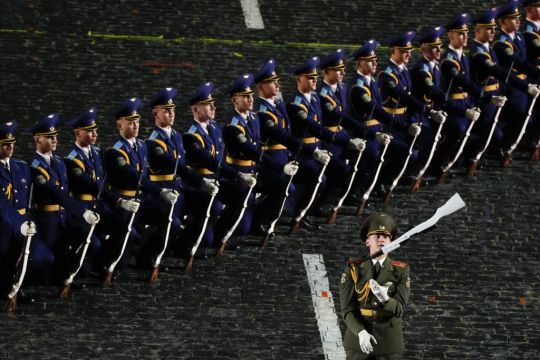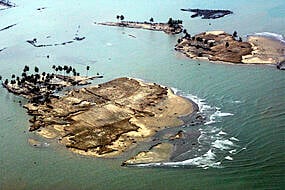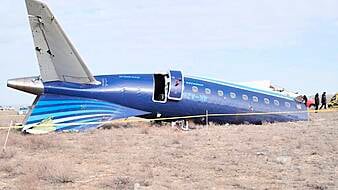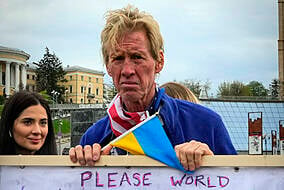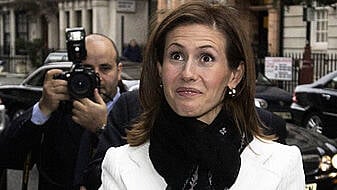The authoritarian leader of Belarus said that the country will soon receive a large batch of Russian weapons, including dozens of combat jets, helicopters and top-of-the-line air defence missile systems.
President Alexander Lukashenko announced the expected acquisition as Russia and Belarus prepare to conduct joint war games starting next week that are set to involve about 200,000 troops.
The announcement highlights Moscow’s growing support for Mr Lukashenko, whose election to a sixth term in August 2020 triggered months of protests and allegations of a rigged vote from the Belarusian opposition and the West.
Russia has staunchly backed the longtime president as his government faced a series of bruising sanctions from the United States and the European Union.
The sanctions were imposed in response to a brutal crackdown on the post-election protests, including the arrests of more than 35,000 people and police beating thousands of demonstrators.
Seeking to secure Moscow’s support, Mr Lukashenko has cast the sanctions as part of an alleged plot by the West to oust him and undermine Russia.
He has described this month’s upcoming military exercises as part of joint efforts to counter Western pressure.

“We effectively have a single army, with the Belarusian military forming its backbone in the western direction,” Mr Lukashenko said.
“If, God forbid, a war starts, the Belarusian army will be the first to engage in the fight, and the western group of Russia’s armed forces will join quickly after to form a joint defence.”
Moscow has granted Belarus a new 1.5 billion US dollars loan and criticised Western restrictions.
Mr Lukashenko said that Russia also will shortly provide Belarus with dozens of warplanes and helicopters and air defence weapons, possibly including the state-of-the-art S-400 missile system.
“We even could get the S-400s.
“We badly need them,” he said.
The two ex-Soviet neighbours have a union agreement that envisages close political, economic and military ties.
In the past, Mr Lukashenko often accused Moscow of forging plots to force Belarus abandon its independence, but he has dropped such rhetoric after his crackdown on protest made him a pariah in the West and forced him to rely squarely on the Kremlin’s support.
Mr Lukashenko said that he would discuss a package of agreements intended to bolster Russia-Belarus integration during a visit to Russia next week, but he emphasised that it would not erode Belarus’ independence.
“There is no talk about the loss of sovereignty,” he said.
But despite his assurances, the planned manoeuvres and Mr Lukashenko’s efforts to forge closer ties with Russia have fuelled concerns of the Belarusian opposition that the president might sacrifice the country’s independence in exchange for Moscow’s support.
“Lukashenko is getting drawn into a military confrontation with the West and is trading in sovereignty, but his legitimacy is dubious and we won’t recognise any documents or treaties that would give up or limit Belarus’ sovereignty,” Sviatlana Tsikhanouskaya, the main opposition challenger in the August 2020 election, said in a telephone interview.
“Any agreements with Russia that would deprive us of an independent future will be reviewed.”
